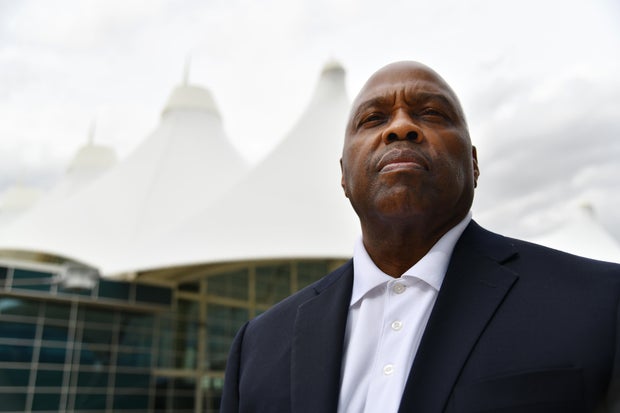Denver International Airport Faces Scrutiny Over $165,000 Executive Madrid Trip
Denver, a city renowned for its vibrant culture, world-class airport, and role as a gateway to the Rocky Mountains, has recently found itself at the center of a heated public discussion. The spotlight shines on Denver International Airport (DEN), following revelations that nine executives spent a staggering $165,000—much of it on premium-class airline tickets—to attend a conference in Madrid. This article explores the details behind the controversy, examines the key facts, and considers what it means for public accountability and airport policies in Denver.

Denver International Airport is under scrutiny for recent executive travel spending.
The Trip That Sparked Controversy
In April 2025, CEO Phillip Washington and eight top executives from Denver International Airport traveled to Madrid for a three-day airport terminal conference. What caught public attention was not just the purpose of the trip, but the extraordinary travel costs: one round-trip airline ticket cost over $19,000, and several others ranged from $9,000 to $16,000. The full cost of the trip included flights, hotels, meals, conference fees, and ground transportation, averaging $18,000 per traveler.
The Denver airport team defended the expenses by pointing out that their travel policy allows premium class seating for international business trips. According to Washington, first and business class travel is seen as a requirement for productivity, ensuring executives can "hit the ground running" once they land.
For a comprehensive news summary, visit CBS News Colorado’s coverage of Denver International Airport’s executive trip.
Public Response: Justified Investment or Excessive Perk?
The news drew swift criticism from the public and media alike. Many questioned whether such lavish spending was truly necessary, especially since competing airports like Dallas-Fort Worth and Los Angeles International sent fewer representatives at far lower travel costs. Moreover, evidence surfaced that some airline tickets could have been purchased for as little as $1,300, raising concerns over fiscal responsibility.
A deeper analysis in One Mile at a Time highlights the tension between rigid travel policies and actual cost-consciousness. Many corporations and public agencies set travel class allowances but may neglect to require employees to seek the most affordable options available. This loophole can result in costly outcomes, as seen with Denver’s airport executives. The article also notes that while flying business class is standard for many on international business, choosing high-priced tickets without sufficient justification can erode public trust.
Travel Policy and Accountability in Denver
Denver International Airport’s leadership admitted that their policies allow the expenses but pledged to review them moving forward. This is especially pertinent as details emerged of one executive allegedly violating the existing travel policy by extending their trip for personal travel well beyond what is permitted. Funding for the trip came from airport revenues, such as passenger fees, parking, and concessions, rather than direct taxpayer dollars. Still, public scrutiny remains high, given the broader issue of transparency and responsible stewardship of communal funds.
For more insights and breakdowns, check the report from Simple Flying on Denver International Airport’s travel policy and spending.
Broader Implications for Denver and Beyond
Denver’s situation is not unique. Across the country, travel expenses for public and quasi-public entities have attracted similar criticism. The key lesson is the importance of balancing the needs of business efficiency with accountability and public perception. As Denver reviews its travel policies, other organizations may follow suit to avoid similar controversies.
Conclusion: What’s Next for Denver International Airport?
The recent exposure of Denver International Airport’s spending on executive travel has ignited an important conversation about transparency, public trust, and prudent financial management. As policies are reevaluated, Denver has an opportunity to demonstrate leadership in balancing efficient operations with public responsibility. Staying informed on such issues helps ensure that the city continues to thrive as a model of accountable growth.
For ongoing coverage of Denver’s airport developments and broader travel policy debates, keep following reputable news sources and join the discussion on responsible spending.